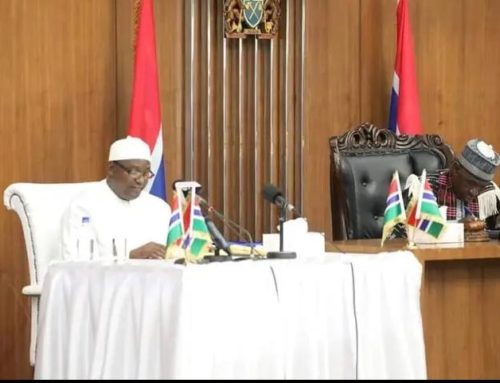The Gambia’s current transportation system is very challenging and unbearable.
It actually stemmed from the gross shortage of oil in the global oil market arena due to the political crisis in Libya which resulted from the riot that was launched against Muamar El Gadafi’s regime in 2011 causing great mayhem and distabilization in the region. The fares then started escalating tremendously due to the subsequent skyrocketing of the fuel prizes in the market.
Often, tensions arise between drivers and passengers on the matter. Sometime ago, after the prizes of fuel came down in the market following Gadafi’s death, the Gambia Government beat down the fares. That was not appealing to the commercial driving community across the country.
Musa Sanneh, a passenger said, “This did not go down well with the drivers and they decided to go on a sit-down strike against the Government’s decision. The result from this Executive order was that the passengers particularly the civil servants and students would have to pay the price for it, the drivers in trying to compensate for what they believed to be an unfair decision taken against them by the Government, they will for instance, not allow any passenger to board their vehicles from Westfield who will be heading towards Tabokoto and Lamin, but will only allow passengers to board in who are heading directly to Brikama.”
They sometimes create series of unofficial vehicle stopping points especially between Westfield and Tabokoto at Tallinding and Latrukunda.
“My suggested solution to this problem is the Gambia Government establishing a rigid state- owned commercial transportation system by buying vans or buses that would be operating locally like it happens in Senegal, these vehicles will operate in a well organized and systematic manner that the buses are labeled with identification numbers like for instance, in the Region Saint Louis(Ndar) Senegal, ranging from one(1) to seven(7), and each of these numbers are assigned to specific regions and locations throughout the region. This will create a strong atmosphere of competition between the private commercial transportation bodies and that of the state-owned, thereby easing and reducing the whole tension in our transportation systems enabling efficient transport networks for the general public,” he concluded.
Biram Cham a van driver said, most of them sometimes fail to return passengers their coins not because they do not want to give them back their change, but they usually do run short of coins.”We also do sometimes encounter serious traffic congestions along the way, especially in the evening when workers closed from work between Westfield and Tabokoto around Latrikunda market, which causes us to burn more fuel than we necessarily should due to the longer periods of time we spend in the traffic.”
He went on to said, they do so to compensate for the amount of money they spend on fuel because the fares to various destinations are not fair to them, and causes them great financial and economic loses.
Malick Jaw a ‘chef-de- garage’ said, it is not part of their responsibility to address such matters, but it is the responsibility of the Ministry of Transport, Works and Infrastructure to address such matters.
“Our only responsibility is to ensure and maintain law, order and safety within the premises of the garages and no where beyond that,” he lamented.
Some of the challenges faced by commuters is the difficulty in getting transport to their destinations on a timely manner due to the behaviour of some drivers who do not follow the standard transport policies set by the state. Most of these commercial drivers would avoid taking the usual direct routes, but will take unnecessary shortcuts for more gains. That makes passengers pay more than the usual fare, and time on their journey.
By: Fatima Sonko






Leave A Comment